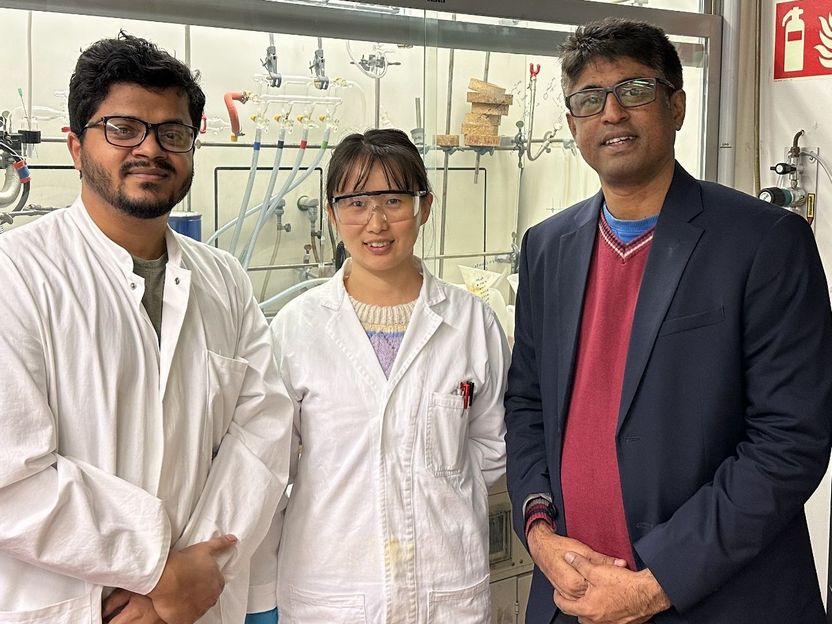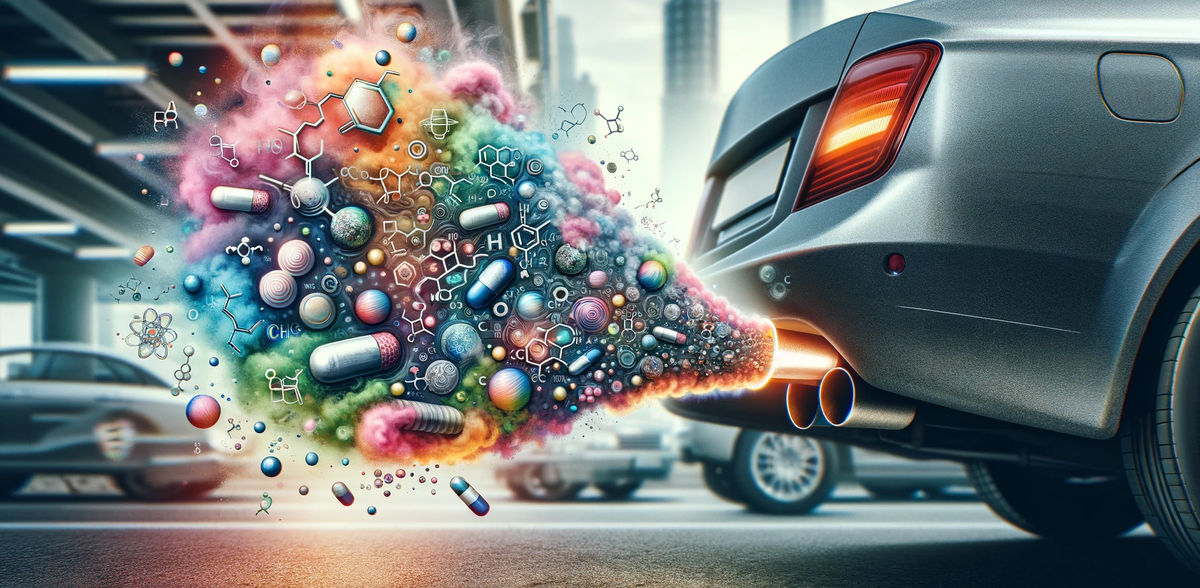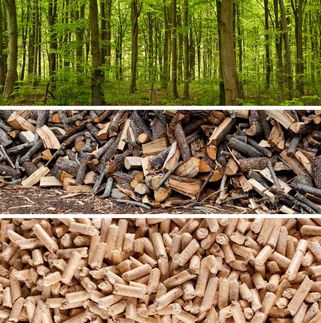New approach to the sensible utilisation of carbon dioxide from car exhaust gases
"A method has been discovered that uses impure CO2 streams and enables a breakthrough in the synthesis of valuable chemicals and pharmaceuticals"
Advertisement
Utilizing impure CO2 from car exhaust, the team of Prof. Dr. Shoubik Das, Chair of Organic Chemistry I at the University of Bayreuth, presents in a paper, which was published in Nature Communications, a cost-effective synthetic route for γ-lactams. γ-Lactam is an organic chemical compound, which is an inhibitory neurotransmitter. This means that CO2, which is frequently produced anyway, can be put to good use. Valuable chemicals and pharmaceuticals can be combined with this CO2.

The Bayreuth Team from left: Dr. Rakesh Maiti, Yuman Qin und Prof. Dr. Shoubhik Das.
UBT
The paper „Straightforward synthesis of functionalized γ-Lactams using impure CO2 stream as the carbon source“ discusses a new method for using CO2, a common greenhouse gas, in the synthesis of valuable chemicals and pharmaceuticals. „Traditional approaches have focused on using pure CO2 gas, but we propose a novel idea that utilizes impure CO2 streams, such as those from industrial flue gas or car exhaust gas“, explains Prof. Dr. Shoubik Das, Chair of Organic Chemistry I at the University of Bayreuth. „The main motivation behind this approach is to reduce the air pollution caused by the accumulation of CO2 and the cost and energy associated with the purification of CO2.“
The paper introduces a specific application of this method for producing γ-lactams, which are essential components in various natural products and pharmaceuticals. „We aim to streamline the synthesis of γ-lactams from readily available materials, like amines and alkenes, while using impure CO2 as a carbon source“, says Das. The significance of this research lies in its potential to provide a more straightforward and sustainable way to produce valuable compounds from waste such as CO2. The authors emphasize the environmental and economic benefits of their approach, making it a noteworthy contribution to the field of CO2 utilization in chemical synthesis.
With this new approach, Prof Das and his team want to develop a sustainable strategy to reduce global warming and air pollution caused by CO2. The Bayreuth scientists Yuman Qin, Suman Pradhan, Rakesh Maitin and Shoubhik Das are hoping for three effects:
- Environmental impact: by using impure CO2 streams, the process offers a more environmentally friendly way to utilise exhaust gases, contributing to efforts to reduce greenhouse gas emissions.
- Cost efficiency: The approach aims to minimise the costs associated with the purification of CO2, which could make the synthesis of important chemicals and drugs more cost-effective in the long term.
- Pharmaceutical development: The specific application of this method to produce γ-lactams, essential components of pharmaceuticals, suggests a simpler and more sustainable route to drug synthesis. This could have a downstream impact on the pharmaceutical industry and potentially lead to more accessible and affordable medicines.
This could benefit the chemical industry, environmental sciences and drug research. "A method has been discovered that uses impure CO2 streams and enables a breakthrough in the synthesis of valuable chemicals and pharmaceuticals," emphasises Prof. Das.
Original publication
Other news from the department science
Most read news
More news from our other portals
See the theme worlds for related content
Topic world Synthesis
Chemical synthesis is at the heart of modern chemistry and enables the targeted production of molecules with specific properties. By combining starting materials in defined reaction conditions, chemists can create a wide range of compounds, from simple molecules to complex active ingredients.

Topic world Synthesis
Chemical synthesis is at the heart of modern chemistry and enables the targeted production of molecules with specific properties. By combining starting materials in defined reaction conditions, chemists can create a wide range of compounds, from simple molecules to complex active ingredients.






























































